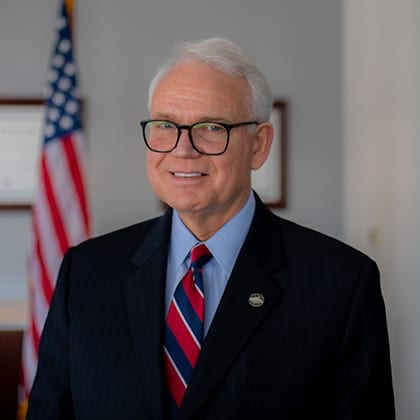Originally published in the Deseret News.
Society is shaped by our collective choices, the demands we make of elected representatives and the laws that result. Today, demands for societal change are rampant. Movements like #MeToo and #NeverAgain reflect the strongest of public sentiment. But the real question is: Are solutions to be found primarily in new laws and policy, or by changing our own behaviors?
As we face the unacceptable behaviors of our generation, how will we create change?
There are lessons from history, but also a growing skepticism toward the remarkable vision of freedom articulated in the Constitution. What if it is not the vision that is flawed, but rather — more and more — the virtues of “we the people”? For all of our discussion of the Founding Fathers, we talk far less about the immutable and vital founding virtues, those behaviors — even restraints — they considered necessary to our freedoms.
It may seem contradictory to connect freedom and restraint, but as societal behavior worsens, the more we look to lawmakers to protect us. And here is the truth: Even as we ask government to enact more social guardrails through lawmaking, those guardrails are useless if ignored by a majority of “we the people.” We can, however, create change at a community level by reintroducing each generation to the founding virtues.
Charles Murray explains them this way: “Two are virtues in themselves — industriousness and honesty — and two of them refer to institutions through which right behavior is nurtured — marriage and religion.” These are the virtues that sparked the American Revolution and inspired the authors of the Constitution, who knew that freedom works only given certain voluntary restraints among its people.
As we consider these virtues, industriousness tops the list. In America, work has always been about more than income — it provides dignity and purpose. Direct connections can be made between a voluntary decline in work and increases in crime and poverty — both of which place a strain on the social safety net and society at large.
Work is also connected to marriage and family. Families create bonds and obligations — in the very best sense. We can view voluntary changes in the traditional family as an expression of freedom — but we cannot dismiss the attendant data that tell us these choices contribute to societal instability.
What about honesty? Trends in honesty are reflected in crime rates, and most criminals come from disadvantaged socioeconomic areas — the same areas where family stability has often eroded. But let’s go beyond just refraining from crime. “Plain honesty,” as described by Thomas Jefferson, is an attribute of straightforward people who keep their word. Whether in business or elected office, honesty is a necessary virtue to a free society.
Finally — to cement the interrelationships of our founding virtues — Clayton Christensen describes a conversation with a Marxist economist near the end of a Fulbright Fellowship. Christensen asked the economist if he had learned anything that was “surprising or unexpected” during his studies. He replied, “Yes. I had no idea how critical religion is to the functioning of democracy. The reason why democracy works,” he said, “is not because the government oversees what everybody does, but rather … because most people, most of the time, voluntarily choose to obey the law.”
He goes on: “In the past, most Americans attended a church or synagogue — Americans followed the rules because they had come to believe that they weren’t just accountable to society; they were accountable to God.”
He finished with this concern: “If religion loses its influence over the lives of Americans, what will happen to our democracy? Where are the institutions that are going to teach the next generation of Americans that they, too, need to voluntarily choose to obey the laws? Because if you take away religion, you can’t hire enough police.”
We are right as a nation to rise up against unacceptable behaviors. But we should not underestimate the more proximate actions we can take by working to establish, in our own homes and communities, a respect for faith, family, honesty and hard work. Without these virtues, we may find no amount of government intervention or police action will be sufficient. When Ben Franklin said, “Only a virtuous people are capable of freedom,” he was not evangelizing; he was stating the understood conditions of democracy — and affirming that freedom requires a majority of people committed to the founding virtues.
More Insights
Read More
What you need to know about the upcoming state party conventions
The two major political parties are about to hold their state conventions. Here’s what you need to know.
Here’s why the First Amendment’s religion clauses are not in conflict
Some suggest there is a tension between protection for the free exercise of religion and the prohibition on the establishment of religion. But a better take is to see the two clauses as congruent.
Is California’s minimum wage hike a mistake?
Is raising the minimum wage a good tool to help low-income workers achieve upward mobility? That’s the key question at the heart of the debate over California’s new $20 an hour minimum wage law for fast food workers.



